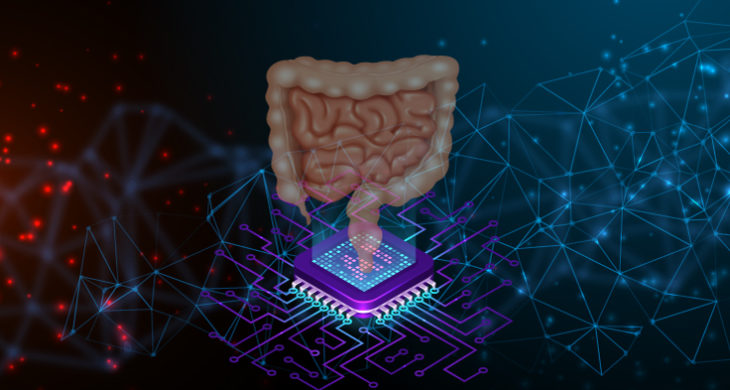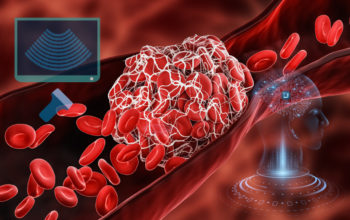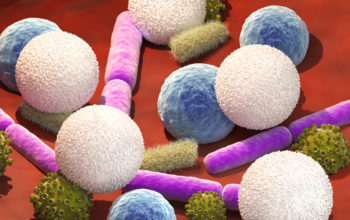
Date: 14th July 2021
There has been an upsurge in recent years in the usage of advanced technologies such as high throughput, bioinformatics, and combinatorial chemistry for better drug candidate identification. The drug discovery market size was valued at USD 39.02 Billion in 2020 and whilst it has evolved significantly with the emerging technologies, the success rates in drug discovery are still lower today than in the 1970s. With access to unlimited amounts of ‘big data’ and sophisticated tools to analyse such data, artificial intelligence (AI) is now being realised as an important instrument in the process, and adoption of AI is on the increase, albeit in its infancy. Now, researchers have developed a new approach that uses machine learning to hunt for disease targets and then predicts whether a drug is likely to receive FDA approval, measurably changing how big data can be analysed.
Drug discovery, in its current state, is expensive and has a high attrition rate, causing huge pressure on the industry to address and solve this challenge. One area of high fall out is the translation from preclinical to clinical trials, where drugs that often work well in preclinical inbred models, such as mice, don’t translate into patients in the clinic, likely due to high variability and individuality of diseases from one patient to another.
Now, researchers at University of California San Diego, US, led by Pradipta Ghosh, Soumita Das and Debashis Sahoo, have used the disease model for inflammatory bowel disease (IBD), to apply their two novel approaches, replacing the first and last steps in preclinical drug discovery. The first step, called target identification, used an artificial intelligence (AI) methodology which built a gene expression map that extracted information that applies to all IBD patients, and was used to discover clinically actionable drug targets. The last step, called target validation in preclinical models, was conducted in a first-of-its-kind Phase ‘0’ clinical trial using a living biobank of organoids created from IBD patients.
To start the team used a database containing 1497 human gene–expression data from both 1263 human samples and 234 mouse samples from publicly available IBD-tissue derived transcriptomic datasets. The data was mined using Boolean Network Explorer (BoNE) to generate a Boolean Network map of IBDs, in which cluster of genes were identified and connected. BoNE machine learning was then applied to seek out gene clusters that were most optimal in distinguishing healthy from disease samples – identifying gene expression patterns that were ‘invariant’ regardless of different disease cohorts. One particular cluster emerged as the most effective to predict disease outcome, which revealed that epithelial barrier-related gene clusters as predictors of therapeutic responses.
Next, the team wanted to exploit the predictive power of BoNE for rationalised target identification and drug discovery. They identified PRKAB1 as a therapeutic druggable target to promote intestinal barrier function, proposed of mechanism of action for PRKAB1 and were able to predict the impact of PRKAB1-agonists on the gut lining.
Translating this knowledge to in vivo testing was the next priority. It is well known that no single mouse model recapitulates all the multifaceted complexities of IBD so the team used BoNE to predict which models would recapitulate the barrier-defect transcript signature in human IBD, and used this model of colitis to test the PRKAB1-agonists. All metrics of the disease were ameliorated with two PRKAB1-specific agonists, whereas none were seen with non-specific agonist.
To translate the findings from mice to humans, and to assess the impact of PRKAB1-agonists on the gut barrier of IBD-afflicted patients, organoids were generated from 18 healthy or IBD-patients and were assessed for barrier integrity. The disease organoids appeared to maintain an intrinsic defect in the epithelial barrier so were a suitable model for human disease and could be considered for Phase ‘O’ of preclinical trials. Upon treatment with the PRKAB-1 agonists ~80% of the diseased organoids showed barriers restoration with a single dose, and the treatment was also shown to be protective against the onslaught of pathogenic bacteria that were added to the organoids.
Finally, the team asked whether BoNE could predict successful versus abandoned targets in IBD using data on five FDA-approved drugs, sixteen drug targets that were abandoned at different phases (I, II or III) in clinical trials, and seven currently ongoing trials. They found that FDA-approved targets were found to overwhelmingly implicate each other, whereas most of the abandoned targets did not implicate any of the approved targets, suggesting the model could accurately assess the probability of a target passing an efficacy test in Phase III clinical trials.
Conclusions and future applications
The team here have addressed an unmet clinical need using an AI-guided drug discovery approach that differs from the current practice in three fundamental ways: 1) Target identification and prediction modelling that is guided by a Boolean implication network; 2) Target validation in network-rationalised animal models that most accurately recapitulate the human disease; 3) Target validation in human preclinical organoid co-culture models, inspiring the concept of Phase ‘O’ trials that have the potential to personalise the choice of therapies. The combined synergy of these approaches validates a first-in-class agent in addressing the broken gut barrier in IBD.
Their findings show a potential new IBD drug, that could work in both acute flare up phases as well as for a maintenance therapy to prevent such flare ups. The researchers, will now be assessing whether this drug, that passed the human Phase ‘O’ trial, can indeed pass Phase III clinical trials, as predicted. They are also hoping the same methodologies can be used for other diseases such as cancer, Alzheimer’s and non-alcoholic fatty liver disease.
Recent advances in organoid technology should aid this work, and the development of Phase ‘O’ trials. Researchers have developed a one-week drug test using patient-derived lung cancer organoids that predict patient therapeutic responses with 100% accuracy and specificity, one of the key points was the nanoscaling of the reactions. Other organoid research has also benefited from the fabrication of microcavity arrays aimed at advancing the industrialisation of organoids. Furthermore, scientists have also developed nanoscale production of new active drugs, combining chemical synthesis, with analysis and biological testing on a single chip. Such work should accelerate organoid use by standardising reactions, increasing the scalability and ensuring reproducibility. As Phase ‘O’ bridges the gap between preclinical and clincial trials, it is hoped that this together with the AI-driven technology offers an exciting new blueprint to challenge the status quo and deliver better drugs for chronic diseases or those that are currently lacking good therapeutics solutions.
For more information please see the press release at UC San Diego Health
Sahoo, D., Swanson, L., Sayed, I.M., Katkar, G.D., Ibeawuchi, S.-R., Mittal, Y., Pranadinata, R.F., Tindle, C., Fuller, M., Stec, D.L., et al. (2021). Artificial intelligence guided discovery of a barrier-protective therapy in inflammatory bowel disease. Nature Communications 12, 4246.
https://doi.org/10.1038/s41467-021-24470-5


